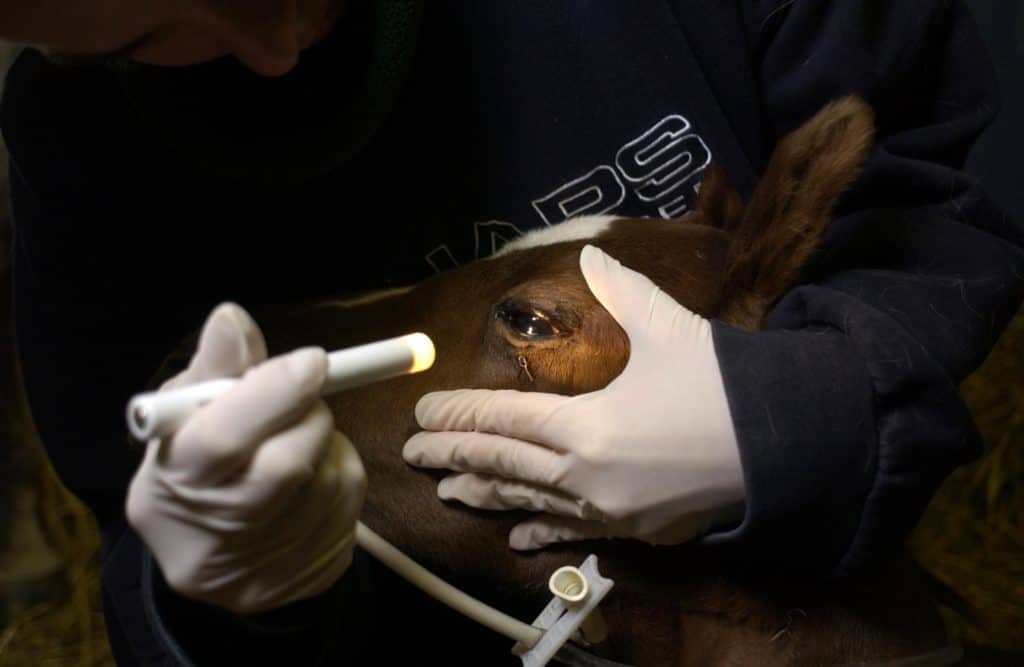Are foals born with the ability to sweat, or cool themselves?
There were nearly 14,000 reported cases of West Nile virus (WNV) in the United States in 2002 by the end of November, and many broodmares were exposed to the virus even if not clinically affected. As the country begins its fifth year of handling
There were nearly 14,000 reported cases of West Nile virus (WNV) in the United States in 2002 by the end of November, and many broodmares were exposed to the virus even if not clinically affected. As the country begins its fifth year of handling
Beneath the smooth surface of articular cartilage, subchondral bone gives structural support to joints. Normally, newborn foals have a lot of water in this layer, which is slowly replaced by calcium and collagen as the foal weights his joints.
Clostridia-associated enterocolitis (inflammation of the small intestine and colon) affects both humans and horses, young and old alike. According to Nathan Slovis, DVM, Dipl. ACVIM, of Hagyard-Davidson-McGee (HDM) Associates veterinary clinic i
The first thing to decide in a foal with abdominal pain is if the colic is surgical or non-surgical, said Bernard. He stressed the importance of observance “before you jump on it” and start taking vitals and administering medications.
Like a structure made of tinker toys, protein is composed of smaller pieces–the amino acids. These can be rearranged to form the different types of protein-based tissues in the body. Protein is one of the basic nutrient elements of the equine
Foaling alarms are designed to notify owners, farm managers, or foaling attendants that a mare is in labor.
Only 20 miles from downtown St. Louis, Mo., is a 1,200-acre research farm owned by the nutrition company Purina Mills. On Oct. 3-5, 140-plus veterinarians and another 50 Purina Mills representatives gathered to tour that research facility and
Newborn foals are especially susceptible to gastrointestinal diseases such as clostridial enterocolitis, which is characterized by abdominal pain, diarrhea, toxemia, shock, or death without prior signs. While this disease occurs only
A young breeder asked me if she could take a mare from her foal for one hour every day.
Your young horse is growing up. From birth to age two, a horse will achieve 90% or more of his full adult height. But growing up too fast can cause problems, including an increased risk of developmental orthopedic disease (DOD), which includes which includes several skeletal problems in growing foals.
Q: My wife and I were told that giving Bute (phenylbutazone) to a mare in foal can cause heart defects in the foal, similar to aspirin taken by women in early pregnancy. Is there any connection?
A: Signs of phenylbutazone toxicity in foals whose…
Some New York breeding farms have experienced an unusual number of foaling problems so far this breeding season, and slightly higher incidences of sickness and herpesvirus abortions. There is evidence to suggest a slight connection between the
It is not unusual for foals to be born with some level of angular limb deformity, but this becomes a problem when the deformity is severe and doesn’t self-correct quickly. If the deviation is relatively minor, it might be resolved with stall

Learn about some of the most common eye problems found in foals and how they can be treated.
Stay on top of the most recent Horse Health news with
"*" indicates required fields